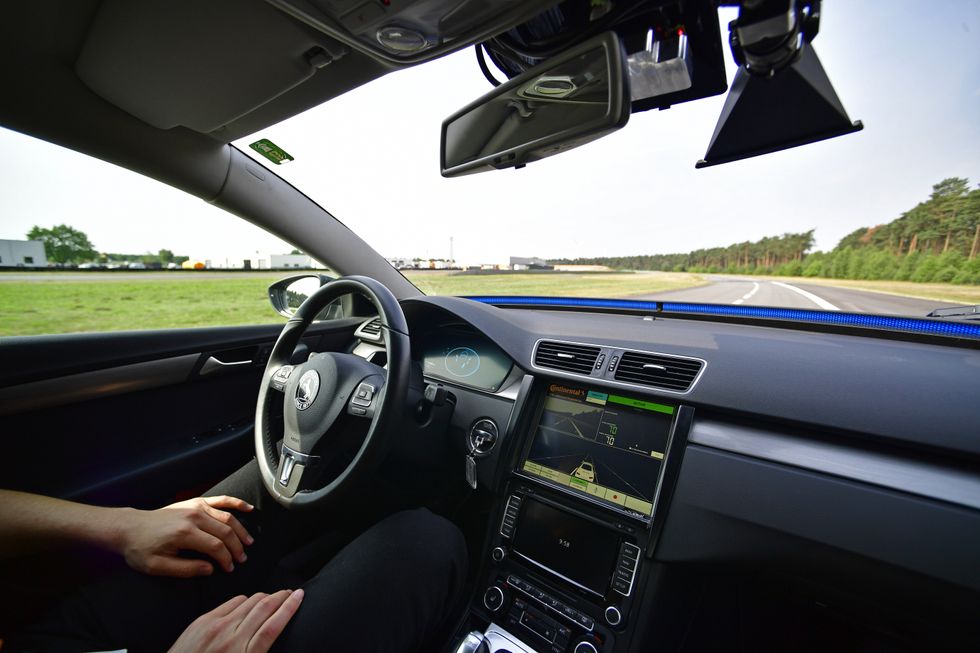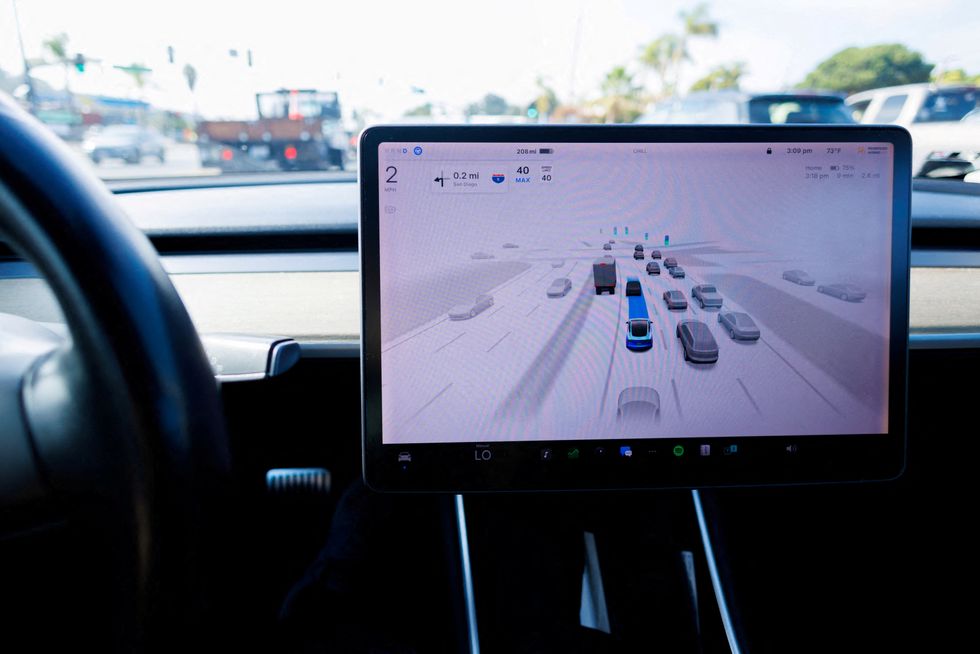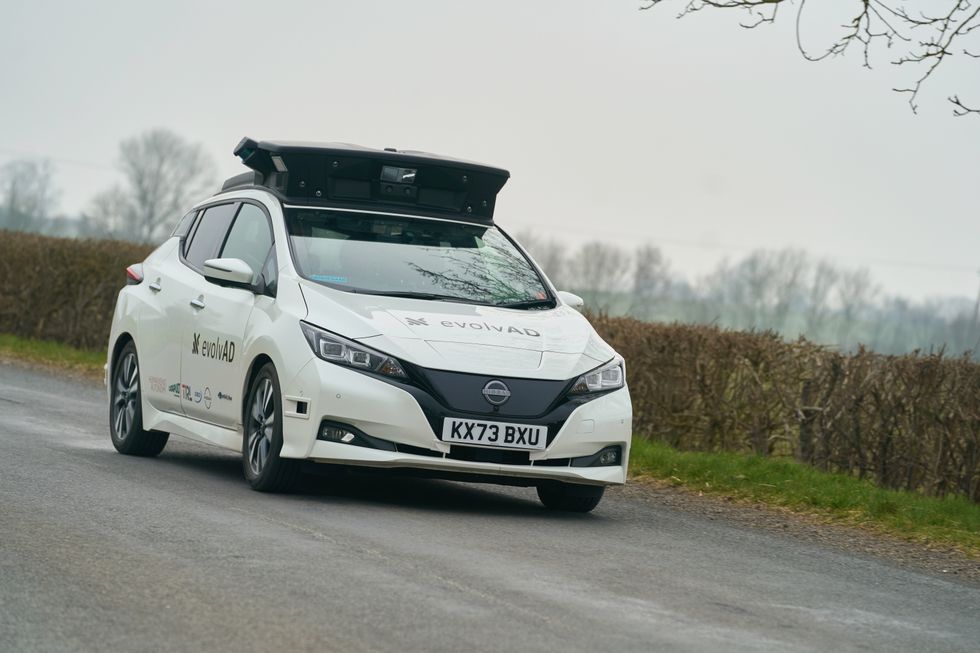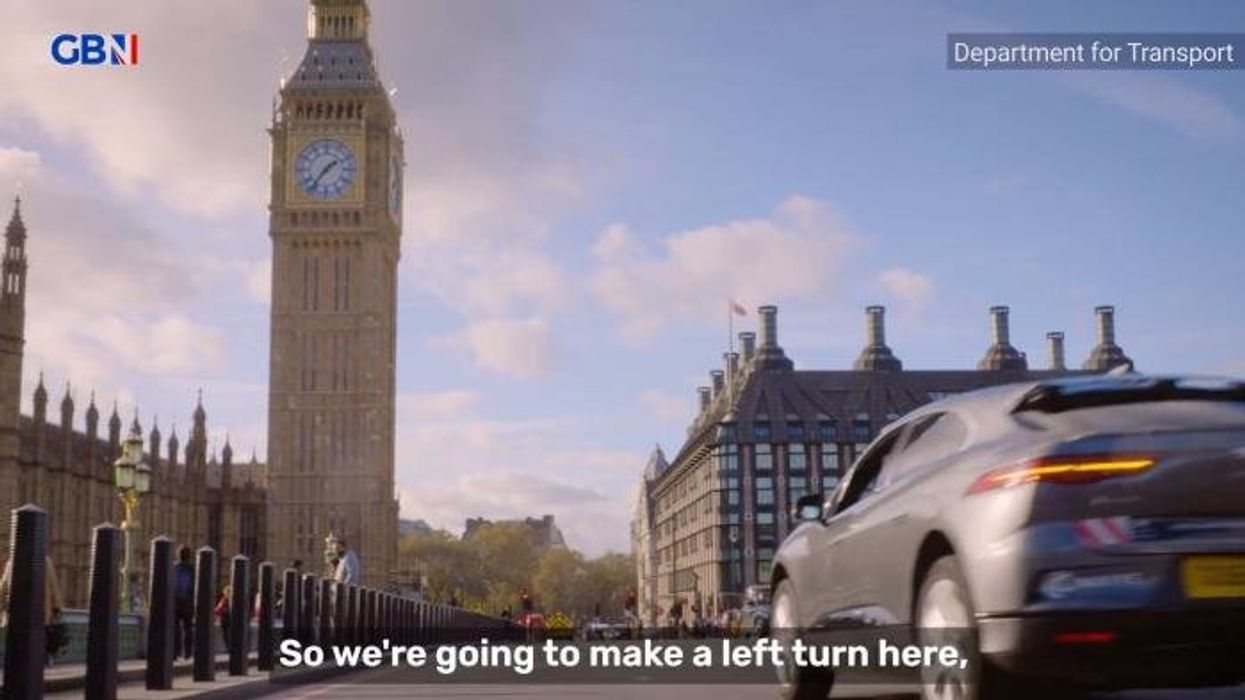Motorists back away from self-driving cars as 'very negative' views cause havoc for Labour's 2026 plans

Drivers have raised concerns about road safety surroundin automated vehicles
Don't Miss
Most Read
Drivers have turned their heads away from driverless cars, despite Labour's ambition to put them on UK roads within the next two years.
It comes after a survey found that 66 per cent of Britons hold a negative opinion of self-driving vehicles, while a staggering 84 per cent said they would not buy one.
Now experts have raised concerns about whether the public is ready to embrace the Government's timeline for introducing autonomous transport, with pilot schemes for driverless taxis and buses set to begin in spring 2026.
According to the survey, only 12 per cent of respondents expressed a positive view of driverless cars, while one in five remained neutral.
TRENDING
Stories
Videos
Your Say
Out of those opposed, concerns about safety and accident risks were found to be key deterrents, with nearly a quarter of respondents identifying safety as their biggest fear.
Other concerns included worry about technical failures and malfunctions, which were mentioned by 18 per cent of respondents, while 17 per cent said they were most concerned about the lack of human control.
A further 12 per cent highlighted the dangers of hacking and cybersecurity threats, and 11 per cent said they were worried about insurance and liability issues. Ethical dilemmas in emergencies were identified by 10 per cent of people, while eight per cent felt the cost of such vehicles was their primary concern.
At present, limited self-driving functions are already legal on UK roads, but they require a human driver to remain behind the wheel at all times.
 Self-driving cars could be available for hire in the UK as soon as next year | GETTY
Self-driving cars could be available for hire in the UK as soon as next year | GETTYThe Government has now confirmed plans to press ahead with a pilot scheme for autonomous taxis and buses from next year, with a broader rollout of privately owned driverless cars pencilled in for late 2027.
Greg Wilson, CEO of Quotezone.co.uk, said: "With the current buzz on driverless cars hitting the headlines, we wanted to understand how the public is really feeling about these futuristic vehicles.
"While the technology continues to advance at a pace, it seems public trust is still catching up. Many people remain understandably cautious about handing over control to a machine – especially on busy, unpredictable UK roads."
Mr Wilson also highlighted that there are still many unanswered questions about who would bear responsibility in the event of a crash.
 Self driving cars are set to come onto UK roads by 2027 | REUTERS
Self driving cars are set to come onto UK roads by 2027 | REUTERSLATEST DEVELOPMENTS:
The sentiment towards self-driving cars also follows the recent closing of a key consultation by the Department for Transport and the Centre for Connected and Autonomous Vehicles.
The consultation, which closed in September, encouraged drivers to share their views on the technology, including how specific symbols and marks should be assessed if they indicate that a vehicle is self-driving.
Transport Minister Lilian Greenwood said at the time: "The AV Act delivers one of the most comprehensive legal frameworks of its kind anywhere in the world, with safety at its core, which will give potential operators, tech developers and manufacturers the confidence to invest in the UK.
"It sets out clear legal responsibilities, so businesses know where they stand, establishes a safety framework and creates the necessary regulatory powers."

Drivers have raised safety concerns about self-driving cars
| NISSANMr Wilson added: "Who would be at fault in the case of a collision? Would it be the driver, the manufacturer, or the software provider? Insurers will need a robust framework for claims in order to help drivers feel more secure."
The data also suggested that negative sentiment has also influenced drivers' opinions around automated cars, with 40 per cent of respondents stating they had a "very negative" opinion of driverless cars, with just five per cent describing themselves as "very positive" towards the technology.
He also confirmed that Quotezone will continue monitoring opinions among both insurers and road users as the rollout approaches.
"Following news that the government is planning to begin a pilot of driverless taxi and bus services as early as next spring, we plan to continue to touch base with the UK's road users and our insurers, to understand the perception and preparation needed for an autonomous future," he said.











